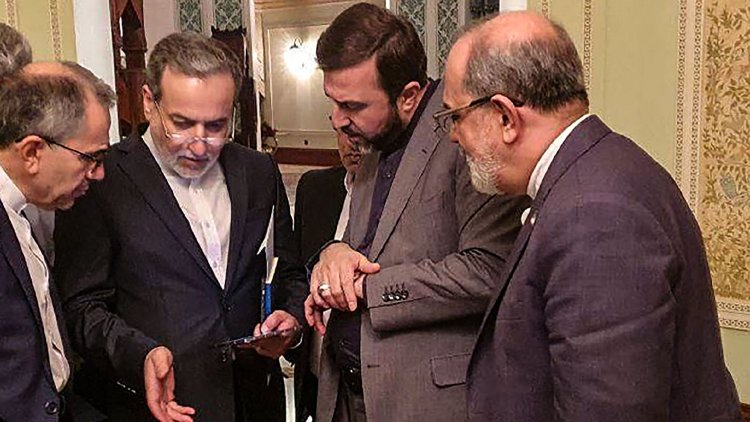Iran describes discussions with U.S. as 'constructive'; additional talks scheduled for April 19
The second round of negotiations between Iran and the United States is set for April 19, following the conclusion of their "indirect" talks in Muscat, the capital of Oman. The discussions were characterized by the Iranian Foreign Ministry as having taken place in a "constructive" atmosphere.

The two-and-a-half-hour discussions involved Iranian Foreign Minister Seyed Abbas Araghchi and U.S. Special Envoy to the Middle East Steve Witkoff, focusing on Tehran's nuclear issue and the potential for sanctions relief, as detailed in a ministry statement.
The parties agreed to continue discussions in the following week. As the negotiations concluded, the heads of the delegations spoke briefly in the presence of the Omani foreign minister.
Addressing reporters in Muscat after the meeting, Araghchi characterized the initial round of discussions as "constructive and held in a calm and very respectful atmosphere." He emphasized that "no inappropriate language was used, and the two sides demonstrated their commitment to advancing the talks until the achievement of a mutually favorable agreement from an equal position."
The minister noted that the second round of talks is "scheduled to be held at the same level next Saturday, but the venue will probably not be here." He indicated that both sides had decided to establish a general framework for an agreement in the next meeting and expressed a mutual interest in reaching an agreement as quickly as possible.
Araghchi added that in the upcoming discussions, "we will try to enter the negotiations' agenda, which will, of course, have a timetable alongside it," while expressing hope that they would be able to establish a foundation for commencing "real talks."
These discussions in Muscat follow an early March statement from U.S. President Donald Trump, who revealed he had sent a letter to Iranian leaders through the United Arab Emirates, suggesting negotiations regarding Iran's nuclear program. Iran subsequently confirmed the receipt of the letter and indicated a willingness to pursue indirect engagement.
Thomas Evans for TROIB News












